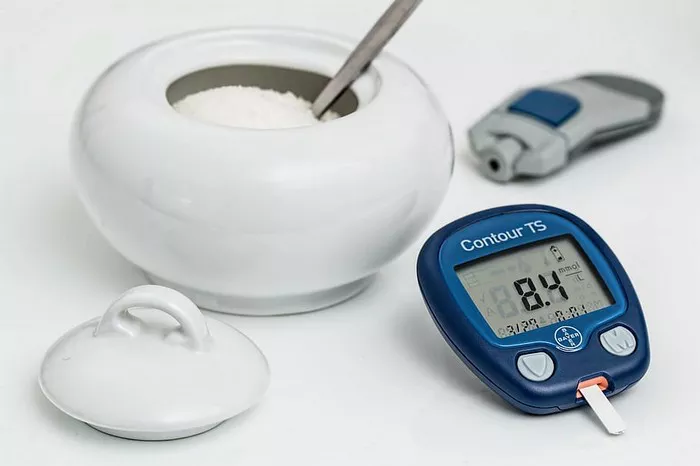Managing blood sugar levels is a crucial aspect of diabetes care. Whether you have type 1 or type 2 diabetes, encountering high blood sugar, also known as hyperglycemia, can be concerning and requires immediate attention. High blood sugar levels can lead to various complications if not addressed promptly. In this article, we will discuss what steps to take immediately when blood sugar is too high to help stabilize levels and prevent further complications.
Understanding Hyperglycemia
Hyperglycemia occurs when there is too much glucose circulating in the bloodstream. This can happen for several reasons, including:
Insufficient Insulin: In type 1 diabetes, the body does not produce insulin, leading to a lack of glucose regulation. In type 2 diabetes, the body may become resistant to insulin or not produce enough insulin to effectively manage glucose levels.
Poor Diet Choices: Consuming high-carbohydrate foods or sugary beverages can cause blood sugar levels to spike.
Lack of Physical Activity: Exercise helps regulate blood sugar levels by promoting glucose uptake into cells for energy. A sedentary lifestyle can contribute to elevated blood sugar levels.
Stress: Stress hormones can cause blood sugar levels to rise, particularly in individuals with diabetes.
Illness or Infection: Infections and illnesses can trigger the release of stress hormones, leading to increased blood sugar levels.
Signs and Symptoms of High Blood Sugar
Recognizing the signs and symptoms of hyperglycemia is essential for prompt intervention. Common symptoms include:
Increased thirst
Frequent urination
Fatigue
Blurry vision
Headaches
Dry mouth
Nausea and vomiting
Difficulty concentrating
Slow wound healing
Unexplained weight loss
If you experience any of these symptoms, especially if you have diabetes, it’s crucial to check your blood sugar levels immediately.
Immediate Steps to Take When Blood Sugar Is Too High
When you discover that your blood sugar levels are elevated, taking prompt action can help prevent further complications. Here are some steps to follow:
Check Your Blood Sugar: Use a glucometer to measure your blood sugar levels. This will give you an accurate reading of how high your levels are.
Drink Water: Staying hydrated can help flush out excess glucose through urine. Aim to drink plenty of water to help lower your blood sugar levels.
Move Your Body: Engage in light physical activity, such as walking or stretching. Exercise helps lower blood sugar levels by promoting glucose uptake into cells. However, avoid strenuous activity if your blood sugar levels are very high or if you’re feeling unwell.
Take Your Medication as Prescribed: If you’re on diabetes medication, take it as prescribed by your healthcare provider. This may include insulin injections or oral medications to help lower blood sugar levels.
Avoid High-Carb Foods: Steer clear of foods that are high in carbohydrates or sugar, as they can further elevate blood sugar levels. Opt for low-carb options such as vegetables, lean protein, and healthy fats.
Monitor Your Symptoms: Keep track of any changes in your symptoms as you take steps to lower your blood sugar levels. If you experience worsening symptoms or if your condition doesn’t improve, seek medical attention immediately.
Contact Your Healthcare Provider: If your blood sugar levels remain consistently high despite your efforts to lower them, or if you experience severe symptoms such as confusion or difficulty breathing, contact your healthcare provider or seek emergency medical attention.
Preventing High Blood Sugar Episodes
While dealing with high blood sugar levels is important, preventing them from occurring in the first place is equally crucial. Here are some tips to help prevent hyperglycemia:
Follow a Balanced Diet: Eat a balanced diet rich in fruits, vegetables, lean protein, and whole grains. Limit your intake of sugary and high-carbohydrate foods.
Exercise Regularly: Engage in regular physical activity to help regulate blood sugar levels and improve insulin sensitivity. Aim for at least 150 minutes of moderate-intensity exercise per week.
Monitor Your Blood Sugar: Check your blood sugar levels regularly as recommended by your healthcare provider. This will help you identify any patterns or trends and make adjustments to your treatment plan as needed.
Take Your Medication: Take your diabetes medication as prescribed by your healthcare provider. Skipping doses or not taking medication as directed can lead to fluctuations in blood sugar levels.
Manage Stress: Find healthy ways to manage stress, such as practicing relaxation techniques, deep breathing exercises, or engaging in hobbies you enjoy.
Stay Hydrated: Drink plenty of water throughout the day to stay hydrated and help prevent dehydration, which can contribute to high blood sugar levels.
Get Enough Sleep: Aim for 7-8 hours of quality sleep per night. Poor sleep can affect blood sugar levels and insulin sensitivity.
Regular Medical Checkups: Schedule regular checkups with your healthcare provider to monitor your diabetes management and make any necessary adjustments to your treatment plan.
Conclusion
High blood sugar levels require prompt attention to prevent further complications. By taking immediate action, such as checking your blood sugar, staying hydrated, engaging in light physical activity, and monitoring your symptoms, you can help lower your blood sugar levels and prevent complications. Additionally, focusing on prevention through healthy lifestyle habits such as following a balanced diet, exercising regularly, and managing stress can help reduce the risk of high blood sugar episodes in the future. If you have diabetes, it’s essential to work closely with your healthcare provider to develop a comprehensive management plan tailored to your individual needs.



























